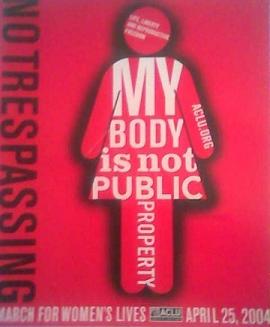You got served and protected #3: preemptive “reasonable force” in Blackburn, Lancashire
(Via Manuel Lora @ LewRockwell.com Blog 2008-06-12: Laughing Too Hard Can Cause You Police Problems, via Roderick Long @ Austro-Athenian Empire 2008-06-12: Reasonable Force.)
Cops in England are heavily armed and trained to be bullies. They routinely shove their way into situations where they aren’t wanted, weren’t invited, and have no business being. They deliberately escalate confrontations in order to stay in control
through superior belligerence. They use violence first and ask questions later; they commonly use force to end an argument and then blame it on their victim. They rewrite events using pliable terms like aggressive,
combative,
and belligerent
to conflate unkind words, purely verbal confrontations, or weak attempts to escape a grip or ward off blow with actual threats or violence against the cops, to excuse the use of extreme violence as retaliation for mouthing off or not just laying down and taking it like an upstanding citizen. They invariably pass off even the most egregious forms of violence against harmless people as self-defense
or as the necessary
means to accomplish a completely unnecessary goal.
Consider, for example, what happened in Blackburn, Lancashire, when Christopher Cocker fell off the couch (from laughing at a comedy program), and a neighbor, not knowing what caused the thud, called the cops to check in on him. The cops showed up; he came to the door, thus demonstrating that the cops, happily, didn’t have an emergency to deal with after all; rather than leaving, they demanded his name and started asking personal questions. He said some unkind words and tried to shut the door; so they sprayed him with parva spray, forced their way in, beat him up, restrained him, stripped him naked, threw him in a cage, and then, to crown all, called his behavior aggressive
and charged him with resisting
a bullying cop who had no reason to arrest him to begin with.
Officers arrived and said Cocker was initially co-operative but became
aggressivewhen they asked his name and tried to shut his front door.He was eventually disabled with parva spray through the gap and arrested.
Jonathan Taylor, defending, said:
The officer accepts in his statement that he struck my client and then sprayed him again.
He was handcuffed and unceremoniously thrown into the back of a police van. When he ended up in a police cell he was asking himself how all this had happened.Mr Taylor told Blackburn Magistrates’ Court, Lancs., said that having informed the police he was the only one in the flat and he was fine, his client could not understand why they wanted his details.
. . . Cocker, of Blackburn, Lancs., pleaded guilty to resisting a police officer and was given a conditional discharge for six months following the incident on May 20.
A charge of assaulting PC Michael Davies was withdrawn.
Speaking after the hearing, Cocker said he had been in his flat minding his own business.
He said:
I can’t believe it – I was thrown in the back of a police van before being stripped naked and put in a cell.
I was handcuffed behind my back and my ankles bound with plastic ties before six of them carried me to the van.. . . Prosecutor Alex Mann said the police went to ensure everything was all right and spoke to Cocker who was
co-operative and relaxedand he assured the officers everything was fine.
He only became worked up when the police asked for his details,said Mrs Mann.
The police tried to explain they just needed the name for the report but he became aggressive and started swearing at the officer.After the hearing Joan Codling, 57, who lives in the flat below and made the call to police, said she contacted officers after being concerned that he may have fallen ill.
She said:
I was worried in case he was having an epileptic fit. There was a lot of noise and I didn’t know what to do so I called the police.A police spokesman said Cocker became
aggressivetowards the officers who feared for their own safety.The spokesman said:
Parva spray was used to stop any confrontation and was necessary to protect the officers and any members of the public who were around at the time.
Within the circumstances, we feel we used reasonable force.
Your idea of reasonable force
may be different from theirs. But what do they care? They have the spray and the cuffs. You don’t. So please note the following, if you happen to be in England:
If government cops show up to see whether you are O.K., and it turns out that you really are O.K. and they don’t need to be there, they will still feel free to use violence in order to force you to give them all the details they need for their stupid government paperwork.
Swearing at a government cop is considered an act of
aggression
that merits massive force, including torture with toxic chemicals, beating, and physical restraint as adefense.
Trying to back out of the confrontation and shut the door on a government cop, who is putatively there to check on whether you’re O.K. and help you out, is also considered an act of
aggression
that merits torture, beating, restraint, &c. as adefense.
If you become verbally
aggressive
towards government cops, they will consider it areasonable use of force
to torture, beat, restrain, &c. you as a preemptive strike against the possibility ofany confrontation,
even if you have given no evidence at all of wanting anything other than to be left in peace.No matter how obviously harmless you may be, no matter how obviously needless the government cops’ presence may be, and no matter how outrageously over-the-top the violence used against you may be, when a gang of cops serves and protects the hell out of you, they can count on newspaper stories to repeated absolutely any excuse their government cronies offer, with a straight face and as the last word of the article, and to report their thuggery as little more than a isn’t-that-funny sort of human interest story — rather than as what it is, i.e. a gang of thugs flipping out, in a fit of pique, and torturing and terrorizing an innocent and completely harmless man, who they were supposedly there to check in on and help out.
If you're baffled that cops could get away with these kind of outrages, it may help to remember that in cities throughout Europe and America, there is no such thing as a civil police force anymore. What we have would be better described as thuggish paramilitary units occupying what they regard as hostile territory. Here as elsewhere, they are going to serve and protect
us, whether we want them to or not, and if we don't like it then they've got a small arsenal of guns and truncheons and cuffs and chemical weapons in order to make sure we get good and protected anyway.


